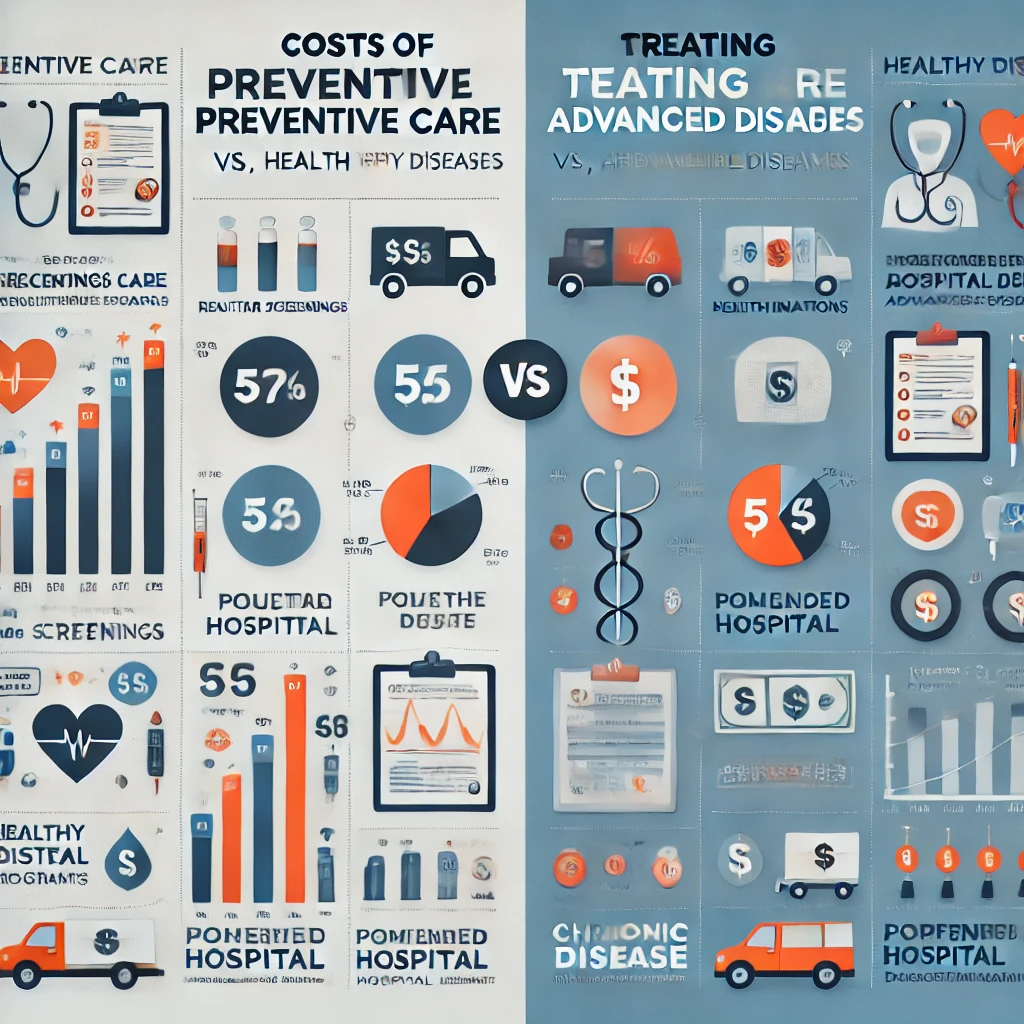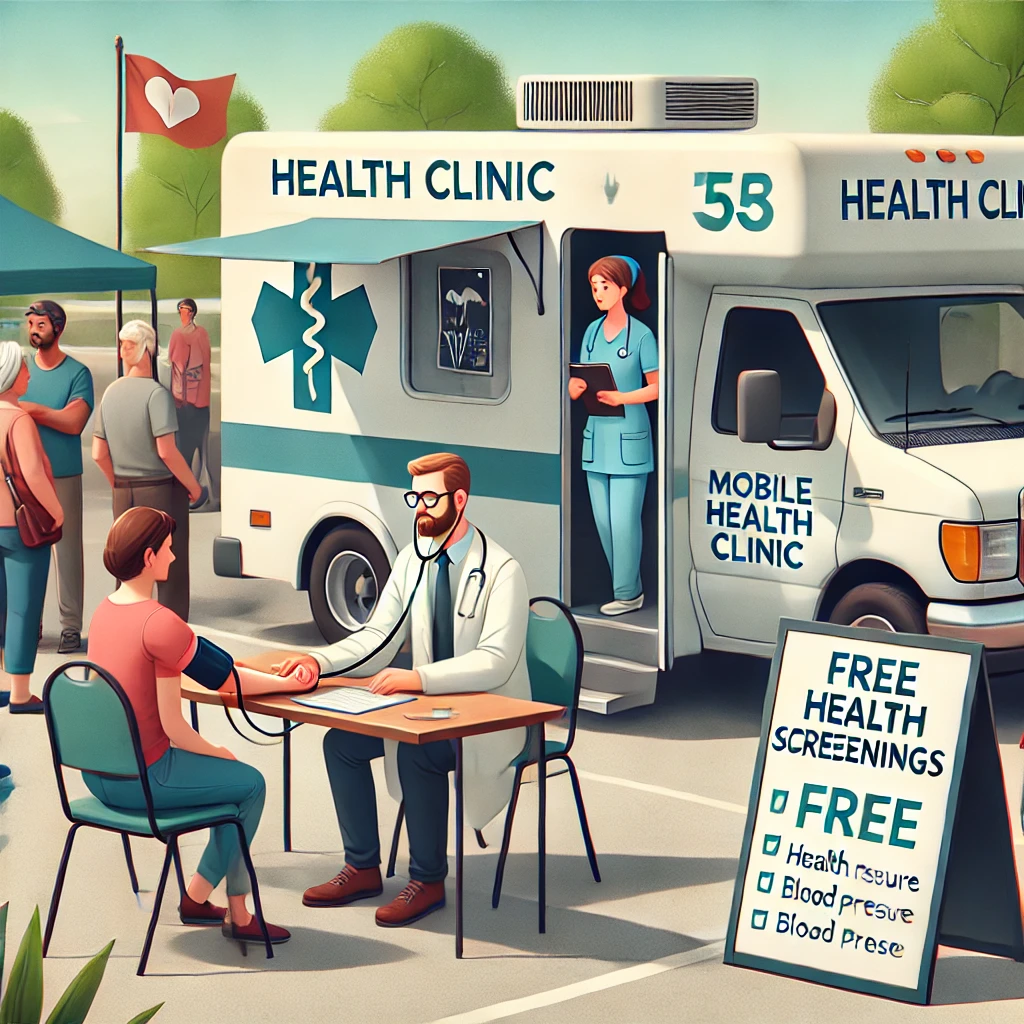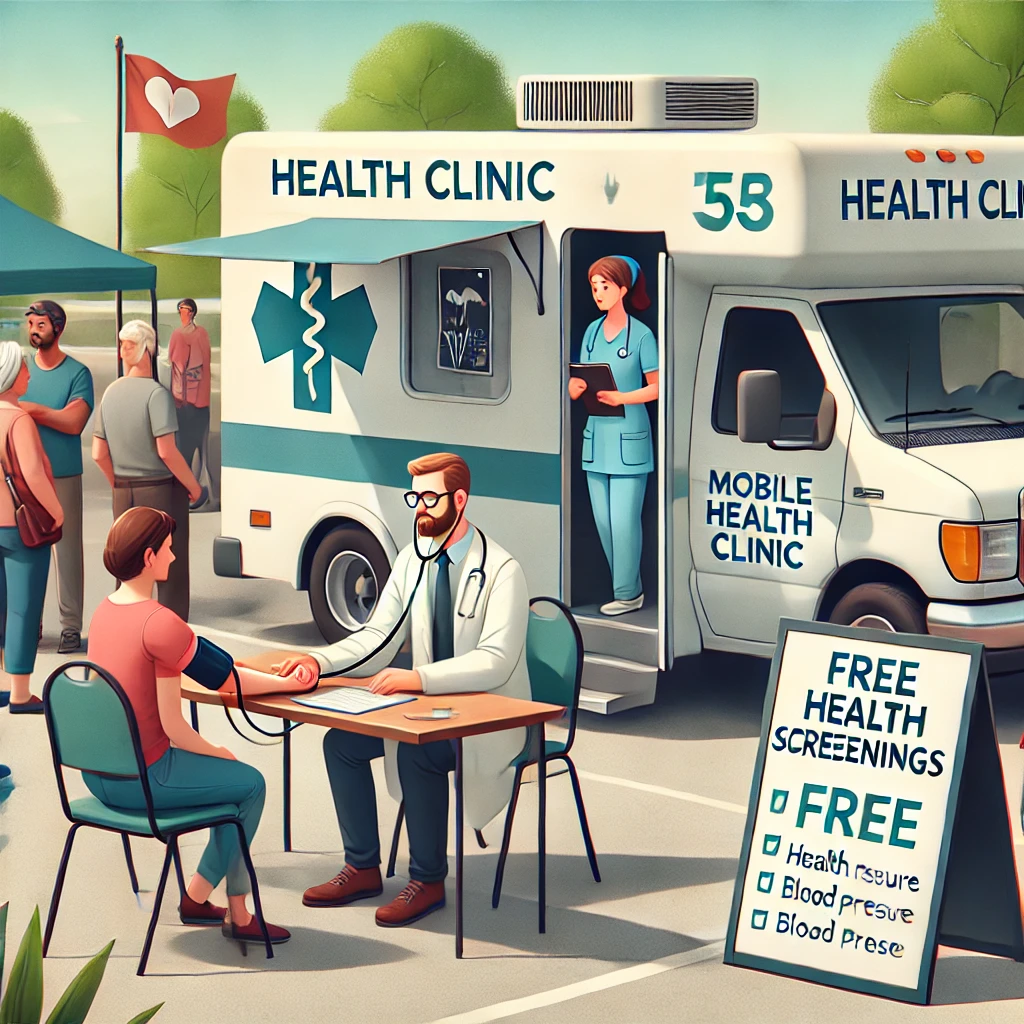
Preventive healthcare is the cornerstone of a well-functioning healthcare system, aiming to identify and mitigate health risks before they evolve into serious medical conditions. By focusing on proactive measures, preventive care not only enhances health outcomes but also significantly reduces long-term medical costs.
Understanding Preventive Healthcare
Preventive healthcare encompasses a range of services and strategies designed to prevent illnesses or detect them early when they are more manageable. These include:
- Regular Screenings and Check-Ups:
- Blood pressure and cholesterol checks.Cancer screenings such as mammograms and colonoscopies.

- Immunizations and Vaccinations:
- Protecting against infectious diseases like influenza, measles, and COVID-19.

- Lifestyle Counseling:
- Guidance on healthy eating, physical activity, and smoking cessation.

- Health Education Programs:
- Workshops and resources on managing chronic conditions like diabetes and hypertension.
The Financial Benefits of Preventive Healthcare
- Lower Healthcare Costs:
- Preventing illnesses reduces the need for expensive treatments and hospitalizations.Early detection of diseases leads to less invasive and costly interventions.

- Increased Workplace Productivity:
- Healthier employees take fewer sick days, enhancing productivity and reducing employer healthcare costs.
- Reduced Strain on Healthcare Systems:
- Preventive measures help avoid overcrowding in emergency rooms and hospitals.
Improving Health Outcomes Through Prevention
- Early Disease Detection:
- Regular screenings catch diseases in their early stages, improving treatment success rates.

- Management of Chronic Conditions:
- Lifestyle interventions and medication adherence help control diseases like diabetes and heart disease.
- Enhanced Quality of Life:
- Preventive measures reduce the risk of complications, allowing individuals to lead healthier, more active lives.

Barriers to Preventive Healthcare
Despite its benefits, preventive care is underutilized due to:
- Cost and Accessibility:
- Lack of insurance coverage or high out-of-pocket costs deter individuals from seeking care.
- Lack of Awareness:
- Many individuals are unaware of the importance and availability of preventive services.
- Healthcare Inequities:
- Disparities in access to care disproportionately affect underserved communities.
Strategies to Promote Preventive Healthcare
- Policy Interventions:
- Expanding insurance coverage for preventive services.
- Incentivizing healthcare providers to prioritize preventive care.
- Community-Based Programs:
- Organizing health fairs and mobile clinics to reach underserved populations.
- Public Awareness Campaigns:
- Educating individuals on the benefits of preventive care through social media, workshops, and public service announcements.

A Call to Action
Investing in preventive healthcare is a win-win strategy for individuals, communities, and healthcare systems. By prioritizing prevention, we can:
- Reduce the burden of chronic diseases.
- Lower healthcare costs.
- Improve the overall quality of life for millions of Americans.

Together, let’s embrace preventive care as the foundation of a healthier and more sustainable future.

